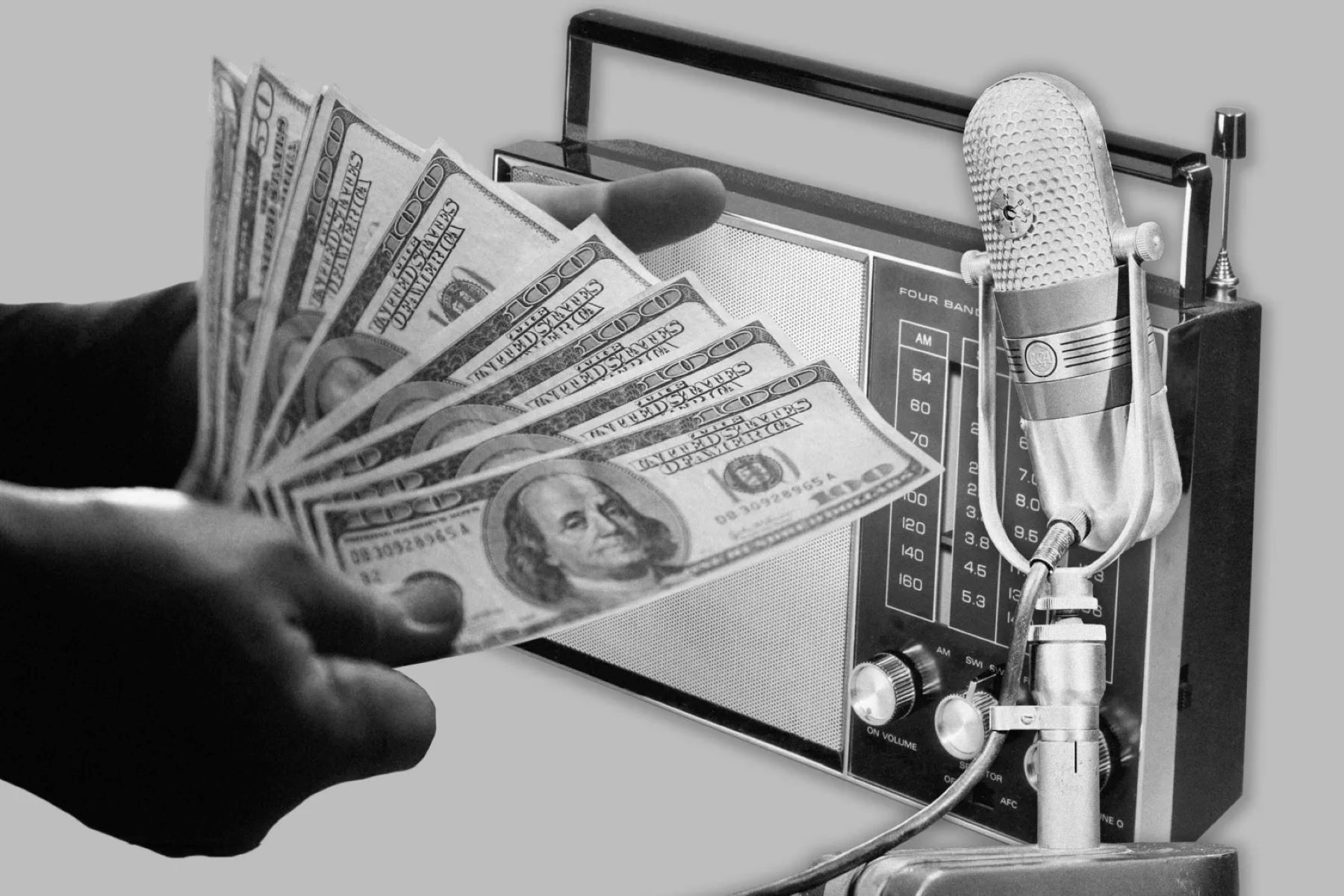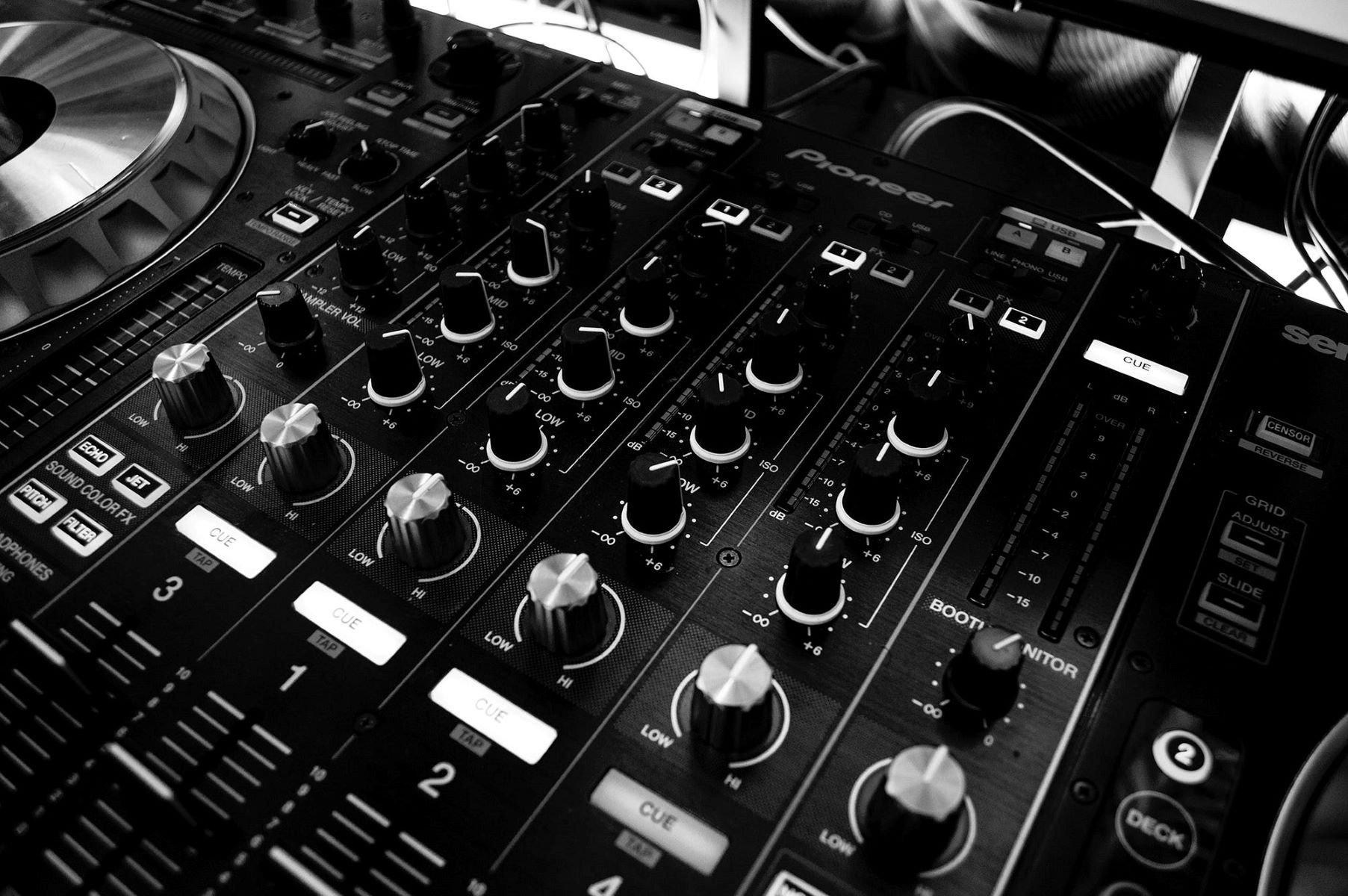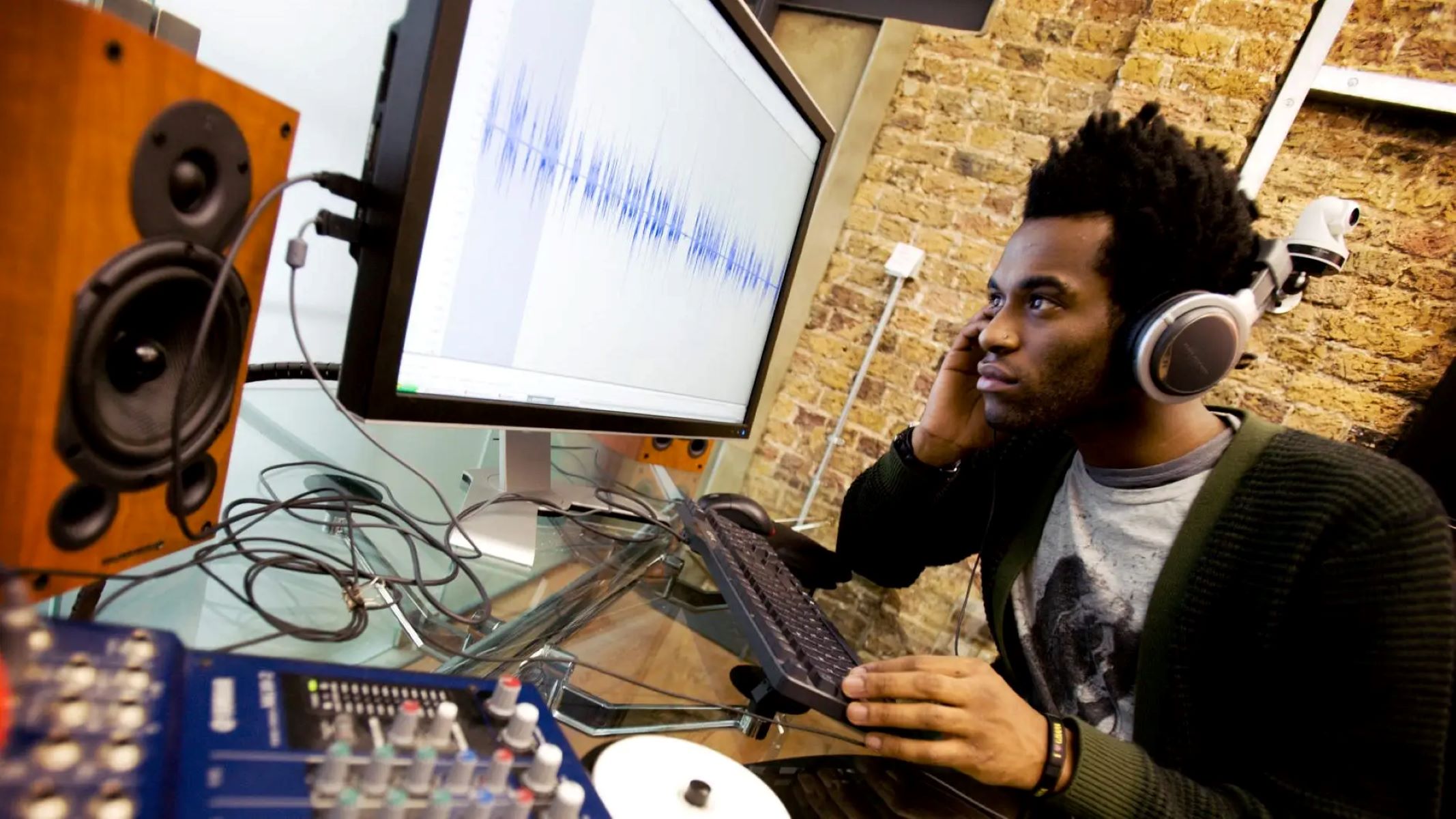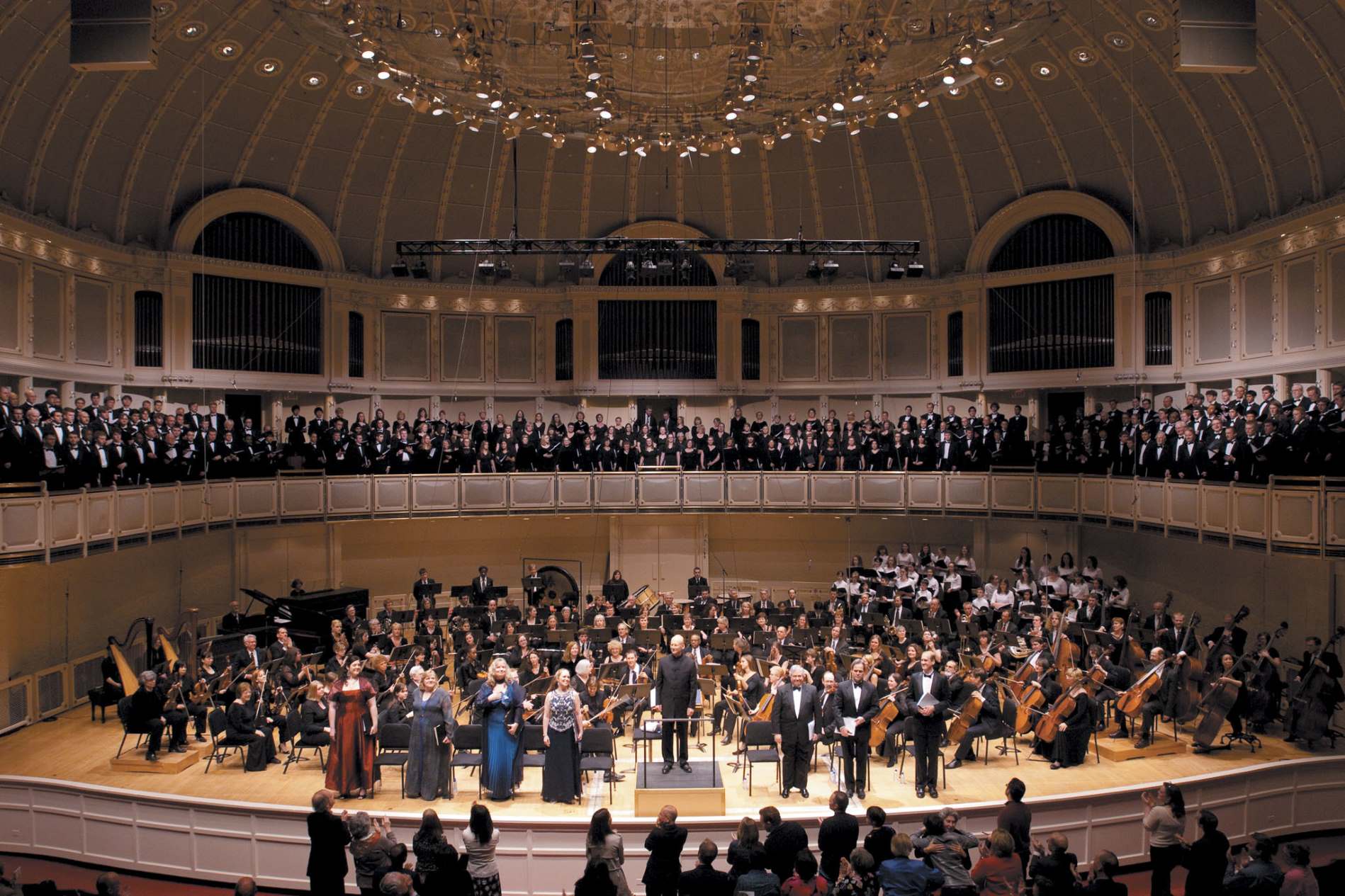Home>Production & Technology>Musician>How To Make Money As A Musician
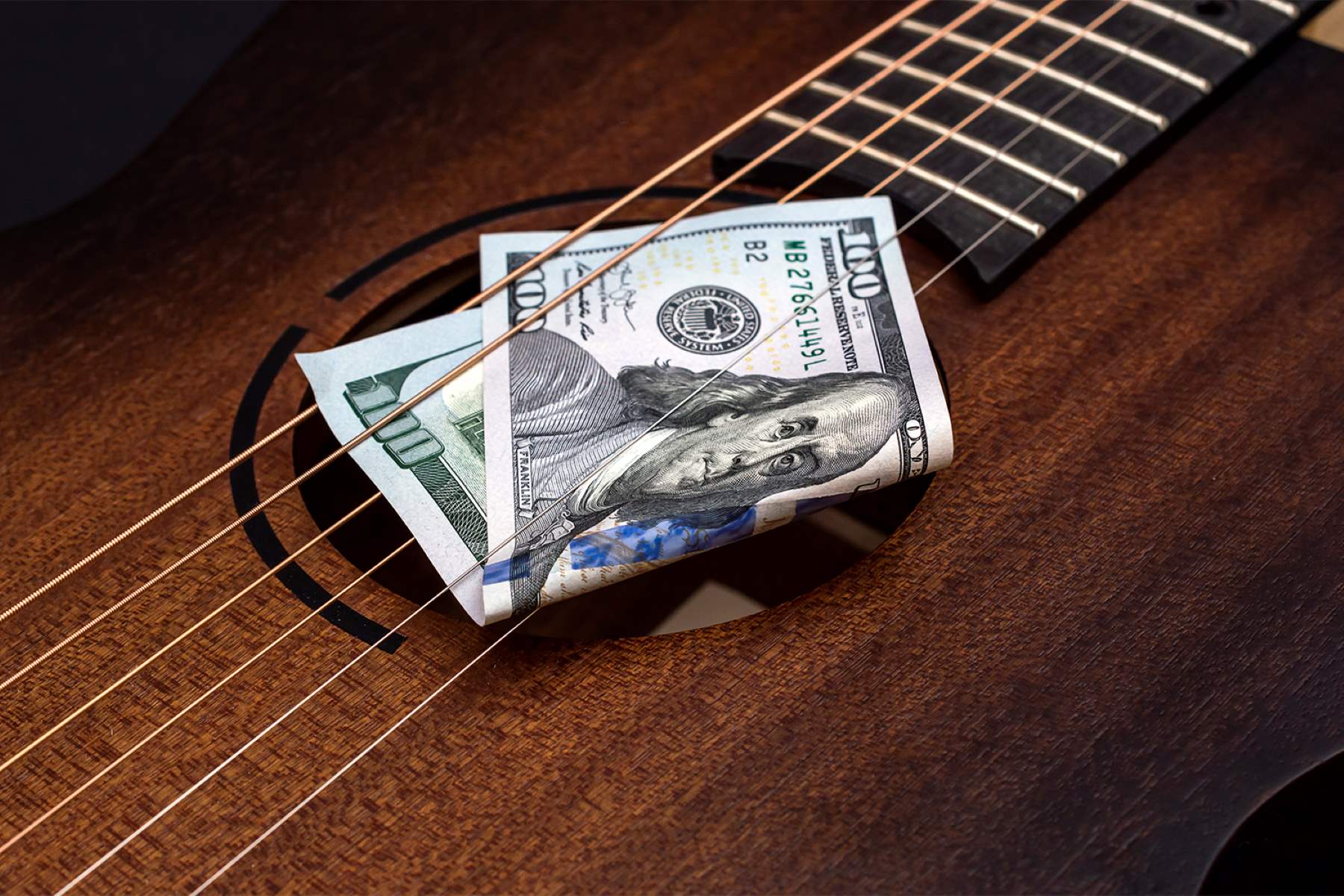

Musician
How To Make Money As A Musician
Published: January 27, 2024
Discover the best strategies to make a steady income as a musician. Explore various avenues, from gigs and royalties to merchandise and online platforms. Boost your career as a musician today!
(Many of the links in this article redirect to a specific reviewed product. Your purchase of these products through affiliate links helps to generate commission for AudioLover.com, at no extra cost. Learn more)
Table of Contents
- Introduction
- Choose Your Musical Niche
- Create Your Unique Sound
- Build an Online Presence
- Monetize Your Music on Streaming Platforms
- Sell Your Music Directly to Fans
- Offer Music Lessons or Workshops
- Collaborate with Other Artists
- Perform Live Gigs and Events
- Get Your Music Licensed for TV, Film, and Commercials
- Utilize Social Media and Online Marketing
- Conclusion
Introduction
Being a musician is a passion that many people pursue. Whether you’re a singer, songwriter, guitarist, or any other type of musician, you have the ability to create beautiful art and touch people’s lives through your music. But being a musician is not just about creating music; it’s also about making a living from your craft.
In this article, we will explore various ways you can make money as a musician. Gone are the days when musicians had to rely solely on record sales and live performances to generate income. With the advent of the internet and digital platforms, there are now countless opportunities for musicians to monetize their talents and reach a wider audience.
Whether you’re an independent artist or a member of a band, these strategies will help you maximize your earning potential and build a sustainable career as a musician. From creating your unique sound to leveraging social media and online marketing, there are multiple avenues to explore. Let’s dive in!
Remember, making money as a musician takes time, effort, and dedication. But with the right approach and a willingness to adapt to the ever-evolving music industry, you can turn your passion into a profitable venture. So, let’s explore the various methods to monetize your musical talents and create a successful career as a musician.
Choose Your Musical Niche
One of the first steps to becoming a successful musician is to choose your musical niche. Define the genre or style of music that you’re passionate about and excel in. This will help you target a specific audience and stand out in a crowded music market.
When selecting your musical niche, it’s essential to consider both your strengths and your interests. What type of music resonates with you the most? What genre allows you to showcase your unique skills and talents? By focusing on a specific niche, you can carve out a distinct identity for yourself in the music industry and attract a dedicated fanbase.
Take the time to research different musical genres and sub-genres, and explore the artists who excel in those areas. By studying successful musicians within your niche, you can gain valuable insights into the strategies they’ve employed and the opportunities available within that genre.
Additionally, consider the market demand for your chosen niche. Is there a sizable audience for your style of music? Are there opportunities for growth and exposure? While it’s important to be true to your artistic vision, it’s also crucial to ensure that there is a viable market for your music.
Remember, choosing a musical niche doesn’t mean restricting yourself creatively. It simply means finding your unique voice within a specific genre or style. Embrace your individuality, experiment with different sounds, and create a signature sound that sets you apart from other musicians.
By selecting a specific musical niche, you can position yourself as an expert in that area, making it easier to target your audience and attract opportunities within that genre. Whether you’re into rock, pop, jazz, hip hop, or any other genre, embracing your musical niche will set you on the path to success.
Create Your Unique Sound
Once you’ve chosen your musical niche, the next step is to develop your unique sound. Your sound is what sets you apart from other musicians and makes you memorable to listeners. It’s the distinct blend of melodies, harmonies, rhythms, and lyrics that make up your musical identity.
To create your unique sound, take inspiration from various sources. Listen to a wide range of artists and genres outside of your niche to expand your musical horizons. Explore different musical techniques, instrumentation, and production styles. Experiment with different chord progressions, melodies, and song structures.
Additionally, don’t be afraid to incorporate your own personal experiences and emotions into your music. Write lyrics that reflect your authentic self and tell your story. Inject your own personality and passion into your performances. This authenticity will resonate with your audience and help you build a dedicated fanbase.
Collaboration with other musicians can also be a great way to develop your unique sound. By working with other artists, you can bring different perspectives and ideas to the table, resulting in a fusion of styles that is truly unique. Don’t underestimate the power of collaboration in shaping your musical identity.
Moreover, take the time to hone your technical skills. Practice your instrument regularly, work on your vocal technique, and improve your songwriting abilities. The more you refine your skills, the better you’ll be able to express yourself and create a sound that is uniquely yours.
Remember, creating your unique sound is a journey that takes time and experimentation. It’s a process of self-discovery and artistic growth. Embrace the evolution of your sound and allow it to develop organically as you continue to explore and push boundaries.
By creating a sound that is distinct and memorable, you’ll be able to captivate listeners and differentiate yourself in the competitive music industry. Your unique sound will be your calling card, attracting opportunities and opening doors to success.
Build an Online Presence
In today’s digital age, having a strong online presence is crucial for musicians. The internet provides a wide array of platforms and tools that allow you to reach and engage with your audience on a global scale. Building an online presence not only helps you promote your music but also allows you to connect with fans, build a community, and generate income.
Here are some essential steps to building an effective online presence as a musician:
- Create a professional website: Your website serves as the central hub for all your online activities. It should have an appealing design, easy navigation, and include essential information such as your biography, discography, upcoming gigs, and contact details. Be sure to optimize your website for search engines to improve its visibility.
- Engage on social media: Platforms like Facebook, Instagram, Twitter, and YouTube are invaluable tools for connecting with fans and building a loyal following. Regularly post updates, share behind-the-scenes content, and provide sneak peeks of new music and upcoming projects. Interact with your audience by responding to comments and messages, creating a sense of community around your music.
- Release music on streaming platforms: Platforms like Spotify, Apple Music, and SoundCloud allow you to distribute your music to a vast audience. Upload your tracks and albums, create playlists, and encourage your fans to follow you on these platforms. Streaming revenue can be a significant source of income for musicians, so make sure to promote your music and drive engagement.
- Utilize video platforms: YouTube and Vimeo are great platforms for showcasing your music videos, live performances, and vlogs. Create visually compelling content that captures the essence of your music and showcases your talent. Consider collaborating with video creators or influencers to expand your reach. Additionally, consider live-streaming performances to engage your audience in real-time.
- Build an email list: Collecting email addresses allows you to directly communicate with your fans. Encourage visitors to your website and social media platforms to sign up for your newsletter by offering exclusive content, discounts on merchandise, or early access to new releases. Use email marketing platforms to send regular updates, announcements, and special offers to your subscribers.
Building an online presence requires consistency, authenticity, and active engagement with your audience. Be genuine in your interactions, share valuable content, and respond to feedback. Remember, your online presence is a reflection of your brand as a musician, so make sure to maintain a professional and positive image.
By establishing a strong online presence, you can expand your reach, connect with fans from all over the world, and create opportunities for monetization, such as merchandise sales, sponsored content, and collaborations with brands. Embrace the power of the internet to propel your music career forward.
Monetize Your Music on Streaming Platforms
The rise of streaming platforms has revolutionized the music industry, providing independent musicians with opportunities to monetize their music in ways that were once reserved for major record labels. Here are some strategies to help you make money from your music on streaming platforms:
- Distribute your music: Sign up with digital distribution services like TuneCore, CD Baby, or DistroKid to get your music on popular streaming platforms such as Spotify, Apple Music, and Amazon Music. These services handle the technical aspects of music distribution, ensuring that your songs are available to a global audience.
- Optimize your profile: Create an artist profile on each streaming platform, providing a compelling bio, high-quality images, and links to your social media and website. Use relevant keywords in your profile to improve discoverability.
- Promote your music: Develop a marketing strategy to promote your music on streaming platforms. Utilize social media, email newsletters, and your website to drive traffic and encourage listeners to stream your music. Consider submitting your songs to playlists curated by influential users or creating your own playlists to showcase your music along with similar artists.
- Maximize streaming revenue: While streaming royalty rates can be low, there are strategies to maximize your earnings. Encourage fans to follow you on streaming platforms, as this increases your chances of being included in their personalized playlists. Additionally, consider participating in platforms that offer higher royalty rates, such as Bandcamp, where fans can purchase your music or merchandise directly.
- Collaborate with influencers: Partnering with social media influencers and content creators who align with your musical style can help expose your music to a wider audience. These collaborations can lead to increased streams and potential monetization opportunities through brand partnerships or sponsored content.
Remember, building a loyal fanbase and gaining traction on streaming platforms takes time and consistent effort. Focus on creating high-quality music, engaging with your listeners, and continuously promoting your releases to maximize your streaming revenue.
Furthermore, stay informed about changes in the music industry, including updates to streaming algorithms and royalty rates. This knowledge will help you adapt your strategy and make the most of your music’s earning potential on streaming platforms.
While making substantial income solely from streaming can be challenging, it serves as a valuable tool for gaining exposure and connecting with fans. By combining streaming revenue with other income streams, such as live performances, merchandise sales, and licensing opportunities, you can build a sustainable music career.
Sell Your Music Directly to Fans
While streaming platforms provide a convenient avenue to reach a broad audience, selling your music directly to fans can be a highly effective way to generate income and cultivate a dedicated fanbase. Here are some strategies to sell your music directly to fans:
- Create your own online store: Set up an online store on your website or using platforms like Bandcamp or Shopify. Offer digital downloads, physical CDs, vinyl records, or limited edition merchandise bundles to entice your fans to support your music.
- Offer exclusive content: Reward your dedicated fans by offering exclusive content that they can’t find anywhere else. This could include unreleased tracks, acoustic versions, remixes, or behind-the-scenes footage. Consider creating a fan club or subscription service that provides access to this exclusive content on a regular basis.
- Personalize your merchandise: Create merchandise that reflects your unique brand and resonates with your fans. Offer t-shirts, hats, posters, or other items featuring your logo or album artwork. Consider autographing merchandise to add a personal touch and increase its value.
- Bundle products: Encourage fans to purchase multiple items by bundling them together at a discounted price. For example, offer a bundle that includes a CD, t-shirt, and sticker. Bundling encourages fans to support you while receiving more value for their money.
- Engage with fans at live shows: Selling merchandise at your live shows not only allows you to generate income but also creates an opportunity to connect with fans on a personal level. Engage in conversations, take photos, and sign autographs. Make each interaction memorable, and fans will be more likely to support your music.
Remember to market and promote your direct-to-fan sales through your website, social media platforms, and email newsletters. Engage with your fans and provide updates on new releases, merchandise, and exclusive offers. Building a strong relationship with your fans is essential to drive sales and create a supportive community around your music.
Additionally, consider offering pre-orders for upcoming releases or limited-edition items. This not only generates anticipation among your fanbase but also serves as a valuable source of revenue before the official release date.
Selling your music directly to fans not only generates income but also strengthens the bond between you and your audience. By offering exclusive content and personalized merchandise, you create a sense of value and exclusivity that encourages fans to support your music and become loyal advocates.
Remember, developing a sustainable direct-to-fan sales strategy requires creativity, consistency, and a deep understanding of your audience’s preferences. By continuously engaging with your fans and offering unique and compelling products, you can successfully monetize your music while fostering a strong connection with your fanbase.
Offer Music Lessons or Workshops
As a musician, one way to monetize your skills and knowledge is by offering music lessons or workshops. Many people have a strong desire to learn an instrument or enhance their musical abilities, and you can capitalize on this demand by sharing your expertise. Here are some steps to get started:
- Decide on your teaching format: Determine whether you want to offer in-person lessons or online classes. In-person lessons allow for face-to-face interaction and personalized instruction, while online classes provide the flexibility to reach students from all around the world via platforms like Zoom or Skype.
- Identify your target audience: Consider who you want to teach. Are you specializing in beginners, intermediate players, or advanced musicians? Are you focusing on a specific instrument or offering general music theory lessons? Understanding your target audience will help you tailor your lessons to meet their needs.
- Create a curriculum: Develop a structured curriculum that outlines the topics you plan to cover in your lessons. This could include technique, theory, sight-reading, improvisation, or specific song lessons. Providing a clear curriculum will attract potential students who are looking for a structured learning experience.
- Determine your pricing: Research the rates in your area or online marketplaces to determine a competitive price for your lessons. Consider factors such as your experience, qualifications, and the demand for your instrument or teaching style.
- Promote your lessons: Market your teaching services through your website, social media platforms, and local community boards. Offer introductory deals or discounts to attract new students. Encourage satisfied students to share testimonials to build credibility and attract more learners.
- Offer workshops or group lessons: In addition to individual lessons, consider offering workshops or group lessons. This can be a cost-effective way to reach more students while providing a collaborative learning environment.
- Continuously improve your teaching skills: Invest in your own education as a teacher. Attend workshops or seminars, explore new teaching methods, and stay updated with the latest trends in music education. Being a knowledgeable and effective teacher will help you attract and retain students.
Teaching music can be a fulfilling and profitable endeavor. Not only does it provide additional income, but it also enhances your own musical abilities, as teaching requires a deep understanding of the subject matter.
Remember, the success of your teaching venture depends on your ability to connect with students, provide valuable lessons, and create a positive learning experience. Tailor your instruction to the needs and goals of each student, and foster a supportive and encouraging environment. By sharing your passion for music and helping others develop their skills, you can make a lasting impact while earning money as a music educator.
Collaborate with Other Artists
Collaborating with other artists is a powerful way to expand your musical reach, gain new insights, and create unique and compelling music. By joining forces with fellow musicians, you can tap into their fanbase, pool your talents, and unlock new creative possibilities. Here’s how you can benefit from collaboration:
- Explore different genres and styles: Collaborating with artists from different musical backgrounds allows you to experiment with new genres or styles that you may not have explored before. This can lead to exciting musical fusions and help you attract a broader audience.
- Expand your fanbase: When you collaborate with other artists, you expose yourself to their audience and vice versa. This cross-promotion can bring new listeners to your music and help you gain followers who may not have discovered your music otherwise.
- Learn from each other: Collaborating with talented musicians gives you the opportunity to learn from their skills, experiences, and perspectives. This exchange of knowledge can inspire personal and artistic growth, helping you become a better musician.
- Create unique and innovative music: Two or more creative minds coming together often result in unique and innovative music. Collaborating allows you to blend your individual talents, styles, and ideas, resulting in songs that are fresh and captivating.
- Share resources and opportunities: Through collaboration, you can share resources, such as recording studios, equipment, or connections. This can help you access opportunities that may have been difficult to achieve on your own, such as joint concerts, festival performances, or music industry connections.
- Build a supportive network: Collaborating with other artists fosters a sense of community and support within the music industry. It opens doors for future collaborations, referrals, and recommendations, as well as providing emotional and creative support.
When seeking collaborative opportunities, consider reaching out to artists whose musical style complements yours or aligns with your artistic vision. Attend local music events, connect with musicians on social media, or join online communities dedicated to music collaboration to find like-minded individuals.
Remember, successful collaborations require open communication, respect, and a shared vision. Be clear about your goals, expectations, and artistic direction from the outset to ensure a harmonious and productive collaboration. Embrace the opportunity to learn from each other, celebrate each other’s strengths, and create something truly remarkable together.
Collaboration adds depth and variety to your music, exposes you to new audiences, and expands your creative horizons. It’s a powerful tool for growth and can lead to exciting opportunities in your music career.
Perform Live Gigs and Events
Nothing compares to the energy and connection that comes from performing live in front of an audience. Live gigs and events are an essential part of a musician’s journey, providing opportunities for exposure, fan engagement, and income. Here’s how you can make the most of live performances:
- Seek out gig opportunities: Look for local venues, bars, clubs, festivals, and community events that book live music. Network with event organizers, fellow musicians, and booking agents to discover new performance opportunities.
- Create an engaging live show: Make your live performances unforgettable by incorporating elements that engage your audience. Consider your stage presence, interaction with the crowd, visual effects, and unique stage setups. Your live show should be a memorable experience that leaves a lasting impression.
- Promote your gigs: Use your website, social media, and email newsletters to announce upcoming gigs and events. Let your fans and followers know where they can see you live and encourage them to attend. Consider partnering with local influencers or media outlets to increase the visibility of your shows.
- Sell merchandise: Utilize your live performances as an opportunity to sell merchandise, such as CDs, vinyl, t-shirts, posters, or other branded items. Set up a merch table or booth at the venue, and engage with fans before and after the show.
- Network with other musicians: Building relationships with fellow musicians can lead to collaborative opportunities, opening doors to new gigs and expanding your fanbase. Attend local music events, connect with other artists backstage, and support each other’s shows.
- Consider virtual performances: In addition to traditional live performances, explore the world of virtual concerts and live streaming. Platforms like YouTube, Facebook, and Instagram offer opportunities to reach a global audience without physical limitations. Virtual performances can also be monetized through ticket sales or virtual tip jars.
- Continuously improve your live skills: Work on your stage presence, vocal or instrumental technique, and overall performance skills. Seek feedback from audience members or fellow musicians to enhance your live performances. The more captivating and memorable your live show, the more likely fans will come back for future gigs.
Performing live not only allows you to connect with your existing fans, but it also provides an opportunity to expand your fanbase and gain new listeners. It’s a chance to showcase your music, talent, and unique personality, leaving a lasting impression on your audience.
Remember, live performances require preparation, practice, and dedication. Rehearse your setlist, polish your stage presence, and engage with your audience to create an impactful and memorable experience. With each gig, you’ll grow as a performer and solidify your presence in the live music scene.
Live gigs and events offer a platform to generate income through performance fees, merchandise sales, and potential future bookings. Embrace the opportunity to connect with your audience, share your passion, and make a lasting impression through the power of live music.
Get Your Music Licensed for TV, Film, and Commercials
Getting your music licensed for TV shows, films, and commercials is an excellent way to gain exposure, earn royalties, and generate income as a musician. Having your songs featured in media can reach a vast audience and also enhance your credibility within the industry. Here’s how you can get your music licensed:
- Produce high-quality recordings: Ensure that your music is professionally recorded, mixed, and mastered. The quality of your recordings can significantly impact your chances of getting your music licensed.
- Create a music library: Compile a catalog of your songs that are suitable for licensing. It’s essential to have a diverse range of tracks, including instrumentals and songs with varying moods and tempos.
- Research licensing opportunities: Research production companies, music supervisors, and licensing agencies that specialize in placing music in TV shows, films, and commercials. Familiarize yourself with their submission requirements and the type of music they typically seek.
- Submit your music: Submit your music to licensing opportunities that align with your style and genre. Use platforms like Music Gateway, Broadjam, or Songtradr that connect artists with licensing opportunities. Craft compelling pitches that highlight the uniqueness and suitability of your songs for specific projects.
- Network with industry professionals: Attend music conferences, industry events, and networking opportunities to connect with music supervisors, directors, and other key professionals in the television and film industry. Building relationships and showcasing your music in person can open doors for licensing opportunities.
- Register your music with a performing rights organization (PRO): Register your songs with a PRO like ASCAP, BMI, or SESAC to ensure that you receive proper royalties when your music is broadcasted on TV or used in commercials. PROs collect royalties on your behalf.
- Collaborate with music libraries: Consider partnering with music libraries that specialize in licensing music for media. These libraries have existing relationships with industry professionals and can pitch your songs to TV, film, and advertising projects on your behalf.
- Stay up-to-date with licensing trends: Keep yourself informed about trends in TV, film, and advertising. Pay attention to the types of music being used and the changing demands of the industry. Tailoring your music to these trends can increase your chances of getting licensed.
Securing licensing deals may take time and persistence, but the rewards can be significant. Getting your music placed in high-profile media can lead to increased exposure, attract new fans, and provide a steady stream of royalty income.
Remember to retain ownership of your music and negotiate favorable licensing agreements. Understand the terms and rights involved, including synchronization licenses, master use licenses, and the duration and territory of the agreement.
Getting your music licensed in TV shows, films, and commercials not only provides financial benefits but also expands your fanbase and elevates your profile as a musician. It’s an exciting avenue to showcase your talent to a wider audience and make a mark in the entertainment industry.
Utilize Social Media and Online Marketing
In today’s digital age, social media and online marketing are essential tools for musicians to promote their music, engage with fans, and expand their reach. By utilizing these platforms effectively, you can build a strong online presence, increase your fanbase, and create opportunities for monetization. Here’s how you can leverage social media and online marketing:
- Choose the right platforms: Identify which social media platforms are most popular among your target audience. Whether it’s Facebook, Instagram, Twitter, YouTube, or TikTok, focus your efforts on platforms where your fans are most active.
- Create engaging content: Craft visually appealing and compelling content that reflects your brand and resonates with your audience. Share behind-the-scenes footage, live performances, music videos, lyric videos, and teasers of upcoming releases. Experiment with different formats, such as Instagram Stories, IGTV, or YouTube series, to captivate your fans.
- Be consistent: Regularly post content to stay on your fans’ radar and maintain their interest. Develop a content calendar to plan your posts and ensure a consistent presence. Engage with your followers by responding to comments, liking and sharing their content, and running interactive polls or Q&A sessions.
- Collaborate with influencers: Partner with social media influencers or popular content creators who align with your brand and music. Collaborative efforts, such as featuring your music in their videos, can help you reach a broader audience and gain new followers.
- Run targeted ads: Utilize social media advertising features to target specific demographics, locations, or interests. Run ads to promote your music, upcoming gigs, merchandise, or special offers. Experiment with different ad formats and monitor the results to optimize your campaigns.
- Build an email list: Collect email addresses through your website or social media platforms and build an engaged fanbase. Send regular newsletters to update your subscribers about new releases, upcoming shows, merchandise, and exclusive content. Use email marketing tools to personalize your messages and track engagement.
- Engage with music communities: Join online music communities and forums, such as Reddit or music-focused Facebook groups. Be an active participant by sharing your knowledge, submitting your music for feedback, and supporting other artists. Building genuine connections within these communities can expand your network and attract new fans.
- Utilize analytics: Use the analytics tools provided by social media platforms to gain insights about your audience, engagement rates, and the effectiveness of your content. Track key metrics like reach, followers, and post engagement to understand what works best for your audience and refine your online marketing strategies.
Remember, building a strong social media presence and effective online marketing require authenticity, consistency, and a genuine connection with your audience. Be proactive in understanding your fans’ preferences and respond to their feedback. Tailor your content to provide value and maintain a meaningful relationship with your followers.
By leveraging social media and online marketing, you can reach a global audience, attract new fans, and create opportunities for monetization. It’s an ever-evolving landscape, so stay informed about new trends and emerging platforms to stay ahead of the curve and maximize your online presence as a musician.
Conclusion
Making a living as a musician requires a multifaceted approach, and the strategies outlined in this article can help you navigate the ever-changing landscape of the music industry. From choosing your musical niche to leveraging social media and online marketing, each aspect plays a crucial role in building a sustainable and successful music career.
By honing your unique sound and creating high-quality music, you can captivate listeners and stand out in a crowded market. Whether you monetize your music through streaming platforms, direct sales to fans, or licensing for TV and film, diversifying your income streams is key to financial stability.
Additionally, offering music lessons or workshops not only provides an additional revenue stream but also allows you to share your knowledge and passion with others. Collaborating with other artists opens doors for creative exploration, networking opportunities, and an expanded fanbase.
Performing live gigs and events allows you to connect with fans on a personal level and create powerful experiences that leave a lasting impression. And finally, utilizing social media and online marketing helps you reach wider audiences, build a loyal fanbase, and open doors to new opportunities.
While the music industry can be competitive and challenging, staying true to your passion, continuously improving your skills, and adapting to the changing landscape will set you on the path to success. Embrace the opportunities that the digital age has brought, and be proactive in exploring new avenues to reach and engage with your audience.
Remember, success as a musician is a journey, and each step you take in building your career contributes to your growth and development. With dedication, perseverance, and a business mindset, you can turn your passion for music into a fulfilling and lucrative profession.
So, take these strategies to heart, be open to learning and adapting, and continue to create music that resonates with your audience. The possibilities are limitless when you combine your talent, creativity, and entrepreneurial spirit!



